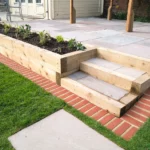Just like any other organization, homeowners associations (HOA) are governed by a board of directors. This board is responsible for making decisions that will impact the community as a whole.
But what exactly goes on during an HOA board meeting? Let’s take a look at what typically happens behind closed doors.
Table of Contents
Who Attends HOA Board Meetings, and Why?
Homeowner’s association board meetings are typically attended by a mix of property owners who live in the governed community, renters, and HOA board members. Some meetings are open to the public and provide an opportunity for open communication between these groups, while others are closed to non-board members. In these meetings, they give everyone a chance to voice their concerns and share their ideas on improving the community.
What Is Discussed in HOA Board Meetings?
The topics of discussion in an HOA board meeting can range from mundane to exciting. Some of the things that might be discussed include:
- The minutes from the previous meeting,
- The budget and financial reports,
- Upcoming repairs or maintenance projects,
- New rules or regulations,
- Improvement plans for the community,
- Complaints and concerns from residents,
- Association documents,
- Newly elected board members,
- And any other business that needs to be addressed.
How Are HOA Board Meetings Run?
The association’s president typically runs an open-session board meeting with input from the other board members. During the meeting, the board members will discuss the agenda items and decide how to proceed as a group. As a homeowner, you may have the opportunity to speak during the meeting if you have something important to share.
After all the agenda items have been discussed, the meeting will be adjourned, and the board members will move on to a closed-session meeting to discuss confidential matters. Homeowners cannot attend this portion unless the board has invited them.
What Responsibilities Do HOA Board Members Have?
HOAs are responsible for the maintenance and upkeep of the common areas within the community and for enforcing any rules and regulations that have been put in place. In order to effectively carry out these duties, board members must be familiar with the operation and management of the association as well as the rights and responsibilities of homeowners. They must also be able to communicate effectively with both homeowners and service providers.
HOA board members are also responsible for handling the finances of the association. This includes preparing and approving the annual budget, collecting dues and assessments from homeowners, and paying for the day-to-day operating expenses of the HOA.
Conclusion
As you can see, HOA board members have a lot of responsibilities to manage. With that being said, they can’t do it all on their own, and they need your support as homeowners to help make your community a great place to live.
Make sure that you take advantage of your ability to sit in on HOA board meetings whenever possible so your wants and needs as a homeowner will be clearly heard.
Seek the Help of a Property Management Professional
If you’re struggling to manage your HOA or condo association, it’s worth contacting a professional management company like Innovative Management for help. With years of experience managing COA and HOA properties, Innovative Management can provide valuable guidance to association board members, ensuring that your properties are managed efficiently and effectively. We offer various services, including financial management, maintenance, and homeowner communication, making managing your association properties easier. By working with Innovative Management, you can have peace of mind knowing that your community is in good hands and managed by experienced professionals.
Contact Innovative Management to start a conversation.


